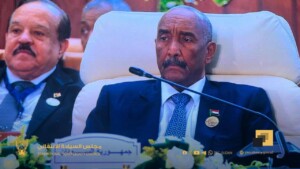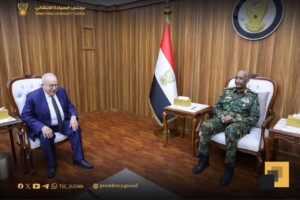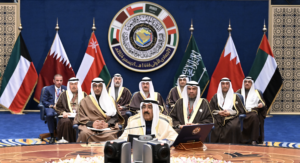Sudan’s National Umma Party welcomes junta-opposition agreement
The National Umma Party (NUP) led by El Sadig El Mahdi welcomes the political agreement signed by the ruling Transitional Military Council (TMC) and the opposition Forces for Freedom and Change (FCC, formerly known as the Alliance for Freedom and Change) on Wednesday. He calls on the armed movements to support the agreement and to participate in a peace process.

The National Umma Party (NUP) led by El Sadig El Mahdi welcomes the political agreement signed by the ruling Transitional Military Council (TMC) and the opposition Forces for Freedom and Change (FCC, formerly known as the Alliance for Freedom and Change) on Wednesday. He calls on the armed movements to support the agreement and to participate in a peace process.
In a statement the NUP said on Thursday: "The signed agreement showed broad consensus on a framework that will put an end to the destructive violence and the long political vacuum." The statement also said that with this agreement the Sudanese people are now turning a bitter and cruel page of division and polarisation and begin a new page of hope and political transition.
Perfectly possible
The NUP stated that the agreement makes it perfectly possible for all revolutionary forces to express their opinions on the Constitutional Declaration. In this document the TMC and the FFC will decide upon the final structure of the transitional period. The NUP expects all revolutionary forces to be able to work on peace arrangements, constitutional arrangements, economic reform and a transitional justice programme during the first six months.
The party hopes all Sudanese will play an active and sincere role in reaching a political transition and a comprehensive national reconciliation.
Armed movements
NUP leader El Mahdi called on the leaders of the armed movements to support the political agreement signed in Khartoum between the military junta and the FCC. He also said that the discussion will not be about quotas within the Sovereign Council, that will rule Sudan the coming three years.
He reacted at the point of view of the Sudan Revolutionary Front (SRF, a coalition of armed movements) that explicitly rejected the agreement on Wednesday, considering it flawed and unacceptable.
In a letter to the SRF leaders, El Mahdi said that "the agreement will transfer power from the current junta to a joint (civilian and military) sovereign council and a cabinet of civilian ministers".
He added: "My dear ones, we are eager that you send us your support about this step forward, and we will decide about assigning positions without quotas."
National Peace Council
In his letter, El Mahdi said that the civilian government will first focus on reaching a just and comprehensive peace. A National Peace Council will be formed, in consultation with all parties concerned. It will be led by the army.
El Mahdi called on everyone to cooperate in order to achieve the desired just and comprehensive peace and to avoid the partial approach to peace that undermined the peace agreements in the former era.
He explained that the African Union and the international community are generally enthusiastic about the transition to civilian rule and that they are ready to support a just and comprehensive peace approach.
Our editorial independence means that we can continue to provide factual updates about political developments to Sudanese and international actors, educate people about how to avoid outbreaks of infectious diseases, and provide a window to the world for those in all corners of Sudan. Support Radio Dabanga for as little as €2.50, the equivalent of a cup of coffee.












 and then
and then